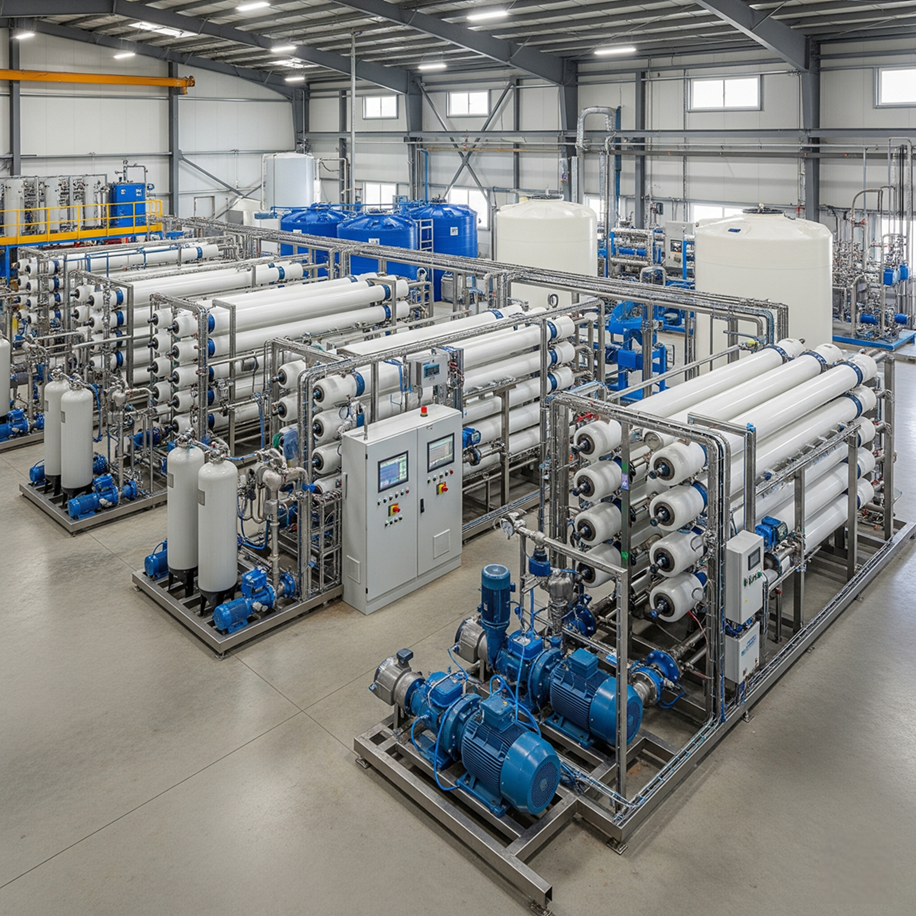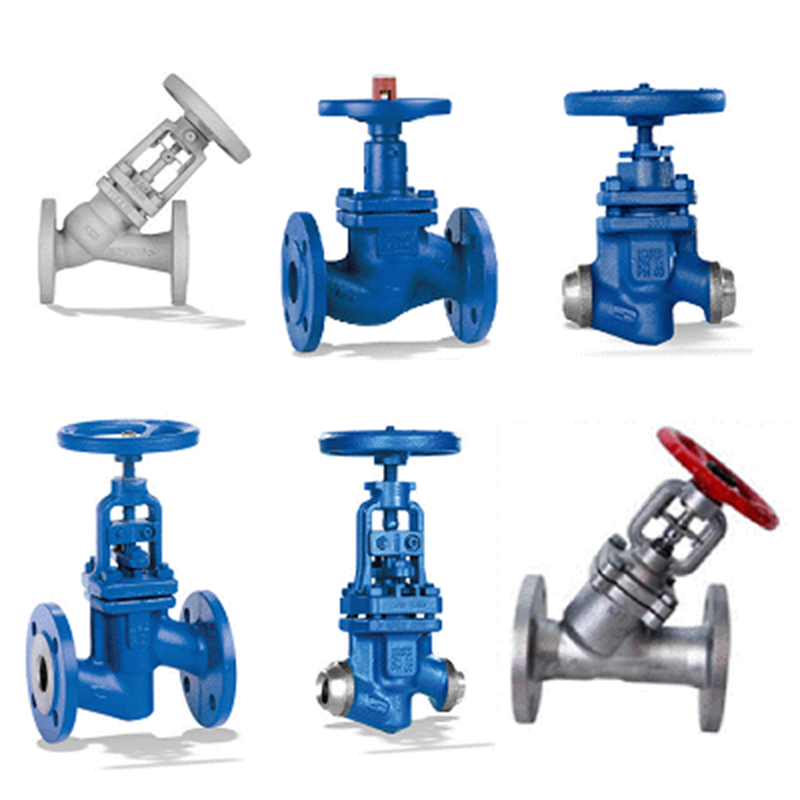
For Business Continuity: Five Key Criteria for Selecting Water Treatment Technology
Selecting the right water treatment technology is critical to ensuring business continuity and compliance across various sectors. Especially as water scarcity and quality issues become increasingly urgent. This selection process must consider multiple key criteria that impact not only immediate operational efficiency. But also long-term sustainability and regulatory compliance. Understanding these criteria helps organizations avoid costly disruptions and align their practices with evolving environmental standards. The five key criteria include treatment method efficiency. Which directly impacts water quality and regulatory compliance; operation and maintenance costs, which include both initial investment and ongoing expenses; and regulatory compliance, which is essential to meeting current and anticipated laws related to water safety and environmental impact.
Additionally, the scalability and flexibility of the selected technology are critical to adapting to future operational requirements and challenges, while sustainability goals emphasize the need for environmentally friendly water management practices. Controversies surrounding water treatment technologies often center on the balance between cost and quality, as less expensive solutions may not meet stringent compliance requirements or sustainability goals. Furthermore, the rapid advancement of technology raises concerns about workforce readiness to implement and manage new systems, which can impact operational efficiency and regulatory compliance. As organizations face these complexities, a careful assessment of these critical criteria can enhance resilience and support long-term business objectives. In short, selecting a water treatment technology involves a multifaceted assessment that prioritizes efficiency, cost-effectiveness, regulatory compliance, scalability, and sustainability. By addressing these factors, organizations can ensure that their water treatment solutions not only meet current needs but also contribute to long-term operational resilience and environmental stewardship.
Critical Criteria
When selecting a water treatment technology, it is essential to evaluate several critical criteria to ensure that the chosen solution meets operational and compliance requirements.
Efficiency of Treatment Methods
The efficiency of treatment methods is a key criterion, as it directly impacts the quality of the treated water. This includes assessing the percentage reduction or logarithmic reduction of contaminants, which can significantly impact operational efficiency and regulatory compliance. Therefore, it is important to ensure that water treatment plants are designed and constructed with the best technologies appropriate for the application.
Operating and Maintenance Costs
Cost assessment plays a vital role in the selection process. Both initial costs and long-term operating expenses, such as labor, energy, and chemical usage, must be carefully analyzed. Additionally, potential maintenance costs should be considered to avoid unexpected financial burdens in the future.
However, the true test of any maintenance plan is ensuring that essential spare parts are available immediately when needed. Waiting weeks for a critical spare part to be shipped from abroad can incur significant losses due to production disruptions. This is where choosing a reliable partner comes in. It’s not just a technology supplier, but a permanent partner for the continuity of your operations. As an authorized agent for leading global manufacturers, CareWater offers its customers a unique guarantee of a strategic stock of all spare parts, along with a smart distribution system that ensures the parts you need arrive at your site in record time, protecting your investment and ensuring business continuity.
Regulatory Compliance
Regulatory compliance is a key aspect of any water treatment solution. Technology must not only meet current standards but also anticipate future regulations, such as emerging contaminants and the potential need for new equipment or operating procedures. This ensures that facilities can adapt to evolving legal requirements without significant disruption.
A vital component of the compliance equation is often overlooked: the quality of replacement parts. Using counterfeit or sub-genuine parts can compromise system efficiency and violate operational warranties, rendering the system unreliable and potentially out of compliance with strict regulatory requirements. Therefore, ensuring genuine, certified replacement parts is an investment in compliance itself. At CareWater, we don’t just sell you a system; we ensure that every reverse osmosis (RO) membrane plate, filter, or other small part you replace is genuine and reliable, with a certificate of conformity that ensures your system continues to perform to the highest standards it was designed to.
Scalability and Flexibility
The technology chosen must be scalable to accommodate future growth or changes in operational needs. This includes assessing the ability to easily upgrade or modify the system in response to increased demand or new treatment requirements. Operational flexibility can enhance the ability to cope with unexpected disruptions and challenges.
Sustainability Goals
With growing concern about environmental issues, incorporating sustainability goals into the selection process is critical. Priority should be given to technologies that reduce water waste, operate with fewer chemicals, and contribute to overall environmental protection. Solutions such as water recycling and continuous electrolytic deionization (CEDI) systems offer sustainable options that align with environmentally friendly goals.
By considering these critical criteria, organizations can ensure that the water treatment technology they select not only meets immediate operational requirements but also supports long-term business continuity and environmental responsibility.
Operational Challenges
There are numerous operational challenges associated with water treatment technologies, which can significantly impact business continuity. These challenges include various aspects, including operating costs, compliance monitoring, infrastructure management, and the integration of emerging technologies.
Operational Costs
Operational expenses are essential to the sustainability of water treatment facilities. These expenses cover day-to-day costs, such as labor, energy, chemicals, and equipment maintenance. Which can be categorized into fixed and variable expenses depending on fluctuations in flow or load conditions.
For example, while labor costs are typically fixed, they must be adjusted based on the local Consumer Price Index. Facilities that follow effective preventative maintenance programs tend to incur lower equipment maintenance costs than facilities that adopt a reactive maintenance approach, which often results in higher costs over the long term.
Meeting these complex challenges requires more than just a supplier. It requires a strategic partner who understands that the water treatment system is the lifeblood of your operations. CareWater offers this partnership through a comprehensive package of services, including installation, preventative maintenance, technical consulting, and, most importantly, an uninterrupted supply chain for any spare part you may need throughout the project’s lifespan. We don’t sell a product; we sell you peace of mind and business continuity, enabling you to focus on your core business while ensuring your water system operates efficiently and reliably.
Read also: The Importance of Choosing the Best Water Treatment Plant Spare Parts Supplier
Compliance Tracking
Ensuring compliance with regulatory standards is crucial to avoiding costly penalties. This requires maintaining detailed records of all compliance efforts and implementing technologies such as video surveillance to monitor compliance and employee safety. Continuous communication with stakeholders. Including residents and regulatory bodies, is essential to building trust and securing financial support during operational challenges.
Infrastructure Management
Infrastructure costs are a significant challenge, including the construction, maintenance, and repair of essential treatment facilities, such as plants and pipelines. Effective long-term planning is crucial, given the high costs of these facilities. Additionally, integrating nature-based solutions and developing existing infrastructure can mitigate risks and enhance operational efficiency.
Technological Integration
The integration of information technology (IT) and operational technology (OT) is transforming the water sector. However, there is a shortage of skilled personnel in cyber analytics, real-time control, and emerging technologies such as artificial intelligence and machine learning. Developing a skilled workforce in these areas is critical to enhancing operational efficiency and improving resource utilization. Municipalities are encouraged to take a systematic approach when implementing new technologies. Including pilot programs to evaluate the effectiveness of different solutions before widespread implementation.

























